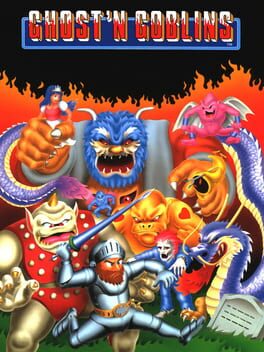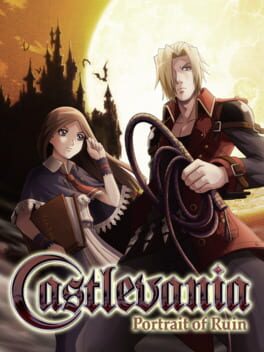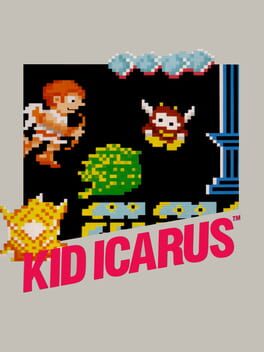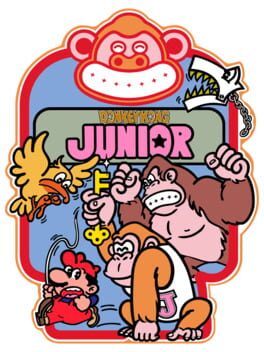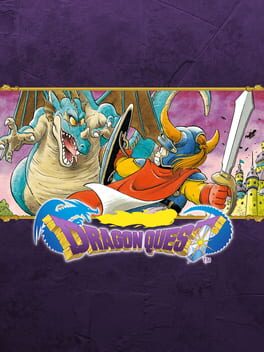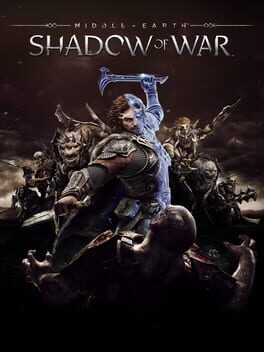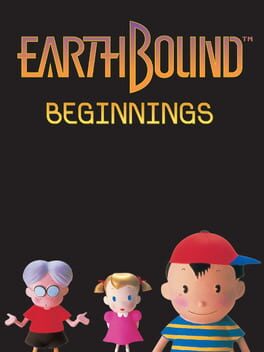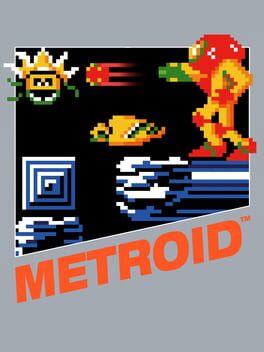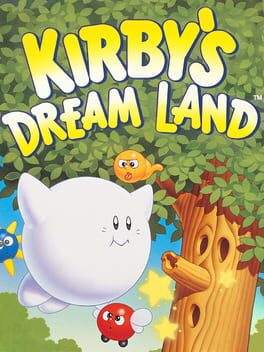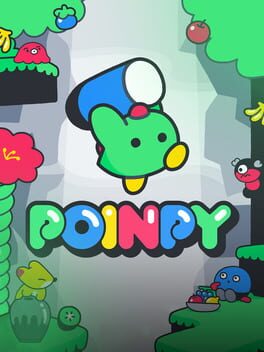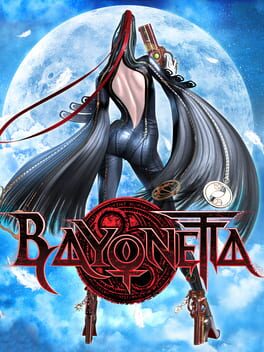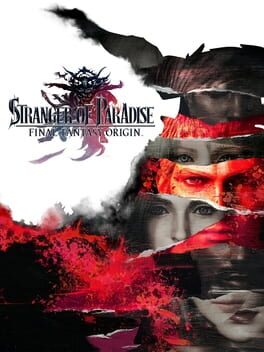baldur
2022
This review contains spoilers
really solid for the most part, though i do have some quibbles.
i think the way dialogue checks are handled in this game is very cool – the first time that the game has you attempting to persuade someone and it takes into account your prior interactions (in a rather strict way) it was an awesome moment that reminded me of how disco elysium impressed me on first playthrough, and i think in some ways this game is even more successful in getting you to be cognizant of what you’re saying and who you’re saying it to. that said, i really think that the “THIS WILL BE REMEMBERED” pop-ups are wrongheaded and go directly against how this mechanic otherwise fosters immersion. in real life, you don’t get non-diegetic alerts about how your interactions are being perceived by other people – neither should you here.
it's always easy with a narrative game like this that focuses on branching paths and player decision to complain that the range of choices is too narrow. i guess where the line falls for me on whether it is or isn't a fair criticism to levy is when it takes me out of the story and alerts me to the artificiality of the game. to be more specific, by the end of act 1 i had investigated most of the leads and was pretty confident in who the culprit was. however, i had also discovered that there was more to the case and that the culprit, along with several other suspects, was being manipulated by an unknown actor (sidenote, i really like how limited the time for your investigation is, feels like another case where the devs were honing in on some untapped potential from disco elysium). moreover, i sympathized with the culprit’s motives and wasn’t comfortable with condemning him to death (in part because he had a family while the other suspects didn’t). needless to say this is an extremely cool situation to throw at the player, but where the game falters for me is in how it allows you to resolve it. andreas, the protagonist, is playing detective to clear his friend piero's name, but what i decided was the best course of action in this situation was actually to withhold the evidence that i'd gathered to the archdeacon who was conducting the inquiry, even if it came at the cost of piero's death. my reasoning was that piero was very old (indeed, it turns out that he passes away in the next few years) and it seemed an action that he might've been able to appreciate given his harmonious, go-with-the-flow worldview, as long as it meant preventing the unjust death of someone else. in any case it's an imperfect solution to an extremely tough situation and i was impressed that the game had gotten me to reach such a morally complex conclusion. however, when it actually came time to have an audience with the archdeacon, i was not allowed to (entirely) withhold information. it turns out that there is, in fact, no situation in which brother piero is executed (probably because his death is the impetus for andreas' return in act 2), even though the archdeacon considers him the strongest suspect before you get involved. the game wants to force you into a tough position of having to essentially choose who gets to die for the crime, but prevents you from choosing brother piero, in spite of that being imo the juciest choice from a narrative standpoint - to choose the outcome that you embarked on this entire quest to prevent is deliciously ironic, and it's also the most congruous with the feeling of guilt that the game tries to foster in act 2 given that players have probably grown more attached to piero than any of the other suspects (you also know for a certainty that he's innocent). instead, i chose to implicate someone who i didn't really think did it but liked the least, which would've been an interesting choice if i had arrived at it organically, but it just doesn't hit when i feel artificially backed into it by the game itself. the game’s attempts to hold it over me just falls flat when i’m thinking “well, i didn’t want to do that, you made me”
it doesn't help that act 1 is easily the best one and that the game slowly loses steam over time. not to any debilitating degree - act 2 and 3 are still quite good - but they just aren't able to match the freshness and cohesiveness of the first one. there are some other issues - i felt that the prose was often too expository, especially at the beginning (it’s hard to be charitable to stuff like this when disco elysium has so concretely exposed the literary possibilities within this medium) – however, these are relatively minor. what remains, overall, is a work that, in spite of some shortcomings, i feel comfortable placing in the upper echelons of video game narratives.
i think the way dialogue checks are handled in this game is very cool – the first time that the game has you attempting to persuade someone and it takes into account your prior interactions (in a rather strict way) it was an awesome moment that reminded me of how disco elysium impressed me on first playthrough, and i think in some ways this game is even more successful in getting you to be cognizant of what you’re saying and who you’re saying it to. that said, i really think that the “THIS WILL BE REMEMBERED” pop-ups are wrongheaded and go directly against how this mechanic otherwise fosters immersion. in real life, you don’t get non-diegetic alerts about how your interactions are being perceived by other people – neither should you here.
it's always easy with a narrative game like this that focuses on branching paths and player decision to complain that the range of choices is too narrow. i guess where the line falls for me on whether it is or isn't a fair criticism to levy is when it takes me out of the story and alerts me to the artificiality of the game. to be more specific, by the end of act 1 i had investigated most of the leads and was pretty confident in who the culprit was. however, i had also discovered that there was more to the case and that the culprit, along with several other suspects, was being manipulated by an unknown actor (sidenote, i really like how limited the time for your investigation is, feels like another case where the devs were honing in on some untapped potential from disco elysium). moreover, i sympathized with the culprit’s motives and wasn’t comfortable with condemning him to death (in part because he had a family while the other suspects didn’t). needless to say this is an extremely cool situation to throw at the player, but where the game falters for me is in how it allows you to resolve it. andreas, the protagonist, is playing detective to clear his friend piero's name, but what i decided was the best course of action in this situation was actually to withhold the evidence that i'd gathered to the archdeacon who was conducting the inquiry, even if it came at the cost of piero's death. my reasoning was that piero was very old (indeed, it turns out that he passes away in the next few years) and it seemed an action that he might've been able to appreciate given his harmonious, go-with-the-flow worldview, as long as it meant preventing the unjust death of someone else. in any case it's an imperfect solution to an extremely tough situation and i was impressed that the game had gotten me to reach such a morally complex conclusion. however, when it actually came time to have an audience with the archdeacon, i was not allowed to (entirely) withhold information. it turns out that there is, in fact, no situation in which brother piero is executed (probably because his death is the impetus for andreas' return in act 2), even though the archdeacon considers him the strongest suspect before you get involved. the game wants to force you into a tough position of having to essentially choose who gets to die for the crime, but prevents you from choosing brother piero, in spite of that being imo the juciest choice from a narrative standpoint - to choose the outcome that you embarked on this entire quest to prevent is deliciously ironic, and it's also the most congruous with the feeling of guilt that the game tries to foster in act 2 given that players have probably grown more attached to piero than any of the other suspects (you also know for a certainty that he's innocent). instead, i chose to implicate someone who i didn't really think did it but liked the least, which would've been an interesting choice if i had arrived at it organically, but it just doesn't hit when i feel artificially backed into it by the game itself. the game’s attempts to hold it over me just falls flat when i’m thinking “well, i didn’t want to do that, you made me”
it doesn't help that act 1 is easily the best one and that the game slowly loses steam over time. not to any debilitating degree - act 2 and 3 are still quite good - but they just aren't able to match the freshness and cohesiveness of the first one. there are some other issues - i felt that the prose was often too expository, especially at the beginning (it’s hard to be charitable to stuff like this when disco elysium has so concretely exposed the literary possibilities within this medium) – however, these are relatively minor. what remains, overall, is a work that, in spite of some shortcomings, i feel comfortable placing in the upper echelons of video game narratives.
1985
damn, i was wrong about this one. actually way more manageable than i remembered it being. only dips into full-on unfairness a couple of times and even then it's stuff you can completely account for and strategize around. still quite a bit more haphazardly designed than the rest of the series (and that shield requirement at the end remains total bullshit), but the bone crushing difficulty has the effect of making you feel like a fucking deity when you overcome it, in a way that no other game truly managed to harness until resurrection last year. mostly i am just struck by how well this game plays and how much it does right on its first attempt. this game came out before super mario bros! how crazy is that?
not bad, but the basic igavania formula is feeling well and truly tired by this point in the series. the egregiously boring, superfluous story that the game wastes way too much time on certainly doesn't help either. castlevania narratives can be a lot of things, but never ever should they be tepid and forgettable (same reason why the netflix show sucks ass). partner system does a decent enough job at differentiating the game from the rest of the series, i guess - it adds some strategy to positioning during boss encounters, but it also doubles the inventory management which is really pushing things. also thought that the world design was pretty bland and restrictive from what i played. banging main theme though.
1986
really solid actually! jump physics feel super tight and enjoyable, level design is generally tough but fair, but most interesting and important to me is the way that the game plays with conventions in a surprisingly forward-thinking way. going from upwards to lateral travel in world 2 was a surprising, exciting change of pace, and the total genre switch during the final boss was awesome and a super memorable way to close out the game, just delightful to see stuff like this in an older title. other details, like freeing little angel guys in the dungeons only for them to help out in your battle against the boss, just bustle with imagination and whimsy. curious about a world in which this got a ton of iterative sequels like its 1986 siblings metroid and zelda. it's lacking a bit of the wow factor and cohesiveness of those games, but is still a remarkably fun time nonetheless.
1982
2004
interesting to play such a primitive jrpg, but it doesn't really result in gameplay that's all too deep or interesting from what i can tell. fair warning, this will be a bit of a rambly review.
i've heard the small inventory space praised as a novel feature but frankly to me it was more cumbersome than anything - "inventory management" only became a priority in the late game when i had so many key items that there was no space left in my inventory, and even then it was just a matter of guessing which ones i was least likely to need and putting them away in storage.
combat here is obviously incredibly basic and for my money the encounter rate is far, far too high for what a boring waste of time it is to sit through. and this maybe goes without saying, but the randomized damage that you and your enemies deal largely eliminates any sort of strategy or skillful play when it comes to the encounters. mostly it becomes about levelling appropriately beforehand, and i guess knowing when to start fleeing if the battle starts going badly (though even that is randomized). but at least the sfc/gbc version is a considerably brisker experience than the absolutely tortuous grindfest that is the nes/fds version.
exploration is initially fairly fun. the progression order is mostly linear but there is a lot of freedom offered in how you go about your journey, and that's rarely a bad thing. inching your way across the world and testing which foes you're strong enough to survive against reliably enough to explore in the vicinity of is a pretty good time. grinding even becomes kind of fun because it's relegated to an option at your disposal instead of a necessity (like it was in the original nes/fds version). the way MP is handled here is one of the few examples in this game of a limitation that actually leads to deeper and more engaging gameplay than if it were more streamlined; the lack of MP recovery items means that you have to manage the resource very carefully in the early game since the spells play such a big part in your damage and healing output. health recovery items are included, though, which makes for an interesting choice on whether you want to spend MP in exchange for a "free" heal (since you can always fully recover it back at the castle), or your much-coveted gold for a backup healing resource.
however, the fun starts to dissipate as you level up and explore more of the world. it's not long into the game before you'll have enough gold to max out on healing items for a miniscule percentage of your money. MP also gradually becomes less useful the more of it you have and the higher damage you do with your basic weapons, and since you're always traveling from town to town you're never too far away from an inn where you can fully recover your health and MP (much like with healing items, the prices are so low in the mid to late game that it becomes trivial to just sleep every time you come across an inn). exploration goes from exciting to a terrible drag as trekking your way across such a large area, constantly interrupted by 2 second combat encounters, becomes an almost herculean task in the late game. the only form of fast travel you're offered is an instant teleport item which sends you back to the castle in the middle of the map. it's useful, but since it only goes one way it's not nearly enough to eliminate the absolute slog that is late game traversal. a relatively easy way to fix this issue would've been offering the ability to travel between towns via the teleport spell that you unlock late into the game. as it stands, the breeziest way to travel is to use a spell (or an item) that stops most lower level monsters from entering into combat with you, which, again, is useful but doesn't eliminate the issue (and also honestly shouldn't have been a spell or an item in the first place, this should kind of just be on by default past a certain point).
i do want to end this review on a positive note though and say that in spite of its issues, the game is very charming. it's sincere but also doesn't take itself too seriously, and well presented across the board, with cute sprite work and cool designs. it's not hard to see why it was so influential, because it really does impart on you the sense that you're on a grand adventure.
i've heard the small inventory space praised as a novel feature but frankly to me it was more cumbersome than anything - "inventory management" only became a priority in the late game when i had so many key items that there was no space left in my inventory, and even then it was just a matter of guessing which ones i was least likely to need and putting them away in storage.
combat here is obviously incredibly basic and for my money the encounter rate is far, far too high for what a boring waste of time it is to sit through. and this maybe goes without saying, but the randomized damage that you and your enemies deal largely eliminates any sort of strategy or skillful play when it comes to the encounters. mostly it becomes about levelling appropriately beforehand, and i guess knowing when to start fleeing if the battle starts going badly (though even that is randomized). but at least the sfc/gbc version is a considerably brisker experience than the absolutely tortuous grindfest that is the nes/fds version.
exploration is initially fairly fun. the progression order is mostly linear but there is a lot of freedom offered in how you go about your journey, and that's rarely a bad thing. inching your way across the world and testing which foes you're strong enough to survive against reliably enough to explore in the vicinity of is a pretty good time. grinding even becomes kind of fun because it's relegated to an option at your disposal instead of a necessity (like it was in the original nes/fds version). the way MP is handled here is one of the few examples in this game of a limitation that actually leads to deeper and more engaging gameplay than if it were more streamlined; the lack of MP recovery items means that you have to manage the resource very carefully in the early game since the spells play such a big part in your damage and healing output. health recovery items are included, though, which makes for an interesting choice on whether you want to spend MP in exchange for a "free" heal (since you can always fully recover it back at the castle), or your much-coveted gold for a backup healing resource.
however, the fun starts to dissipate as you level up and explore more of the world. it's not long into the game before you'll have enough gold to max out on healing items for a miniscule percentage of your money. MP also gradually becomes less useful the more of it you have and the higher damage you do with your basic weapons, and since you're always traveling from town to town you're never too far away from an inn where you can fully recover your health and MP (much like with healing items, the prices are so low in the mid to late game that it becomes trivial to just sleep every time you come across an inn). exploration goes from exciting to a terrible drag as trekking your way across such a large area, constantly interrupted by 2 second combat encounters, becomes an almost herculean task in the late game. the only form of fast travel you're offered is an instant teleport item which sends you back to the castle in the middle of the map. it's useful, but since it only goes one way it's not nearly enough to eliminate the absolute slog that is late game traversal. a relatively easy way to fix this issue would've been offering the ability to travel between towns via the teleport spell that you unlock late into the game. as it stands, the breeziest way to travel is to use a spell (or an item) that stops most lower level monsters from entering into combat with you, which, again, is useful but doesn't eliminate the issue (and also honestly shouldn't have been a spell or an item in the first place, this should kind of just be on by default past a certain point).
i do want to end this review on a positive note though and say that in spite of its issues, the game is very charming. it's sincere but also doesn't take itself too seriously, and well presented across the board, with cute sprite work and cool designs. it's not hard to see why it was so influential, because it really does impart on you the sense that you're on a grand adventure.
2019
2017
it is quite a rare thing in this industry nowadays for a game to be genuinely innovative, something that cannot be neatly placed in any one category or easily compared to other works. you could say that rain world takes cues from survival games and metroidvanias, but the crucial bit is that it doesn't let itself get constricted by any genre conventions. it borrows what works and leaves behind what doesn't. how easy would it have been to emphasize the combat a bit more, expand the offensive capabilities, add some bosses here and there? how easy would it have been to make the levels a little bit more neatly structured and paced, to gate exploration and progression behind a lock and key structure? how easy would it have been to make the enemies a tad more predictable, more exploitable, more "fair"? in all likelihood these were enticing temptations; they're tried and true methods of game design that would've served to make the game more marketable, more familiar, more accessible - and worse. instead, rain world has the courage to coalesce into something original. something new. something that's not afraid to question even the most entrenched pieces of game design wisdom, like the notion that games should always strive to be fair, or even fun. it's the sort of game that this industry desperately needs more of. in a just world, this will be looked at in about a decade or so as an influential classic that spawned many imitators and successors. there's no guarantee that'll happen though, because, as rain world itself takes care to remind you, the world doesn't operate on just principles. sometimes, all one can do is hope for the best.
1986
the first thing one might notice upon picking up metroid is that it feels pretty cruddy to play. the slippery jump mechanics and limited attack options are ill-suited to the challenges that you'll face. the level design is largely repetitive and boring: most of the rooms are tortuously stretched out horizontal or vertical corridors that are copy-pasted ad-nauseam throughout. the encounter design does not fare much better; a number of enemies and bosses are relentless and seem to just expect you to tank through hits, while other enemies test only your patience thanks to the aforementioned limited moveset. that being said, in spite of being filled with - let's face it - bad game design, metroid is not a bad game. what saves it are its larger design aspirations; its pioneering of unguided, player-driven exploration and its commitment to weaving together the combat with the traversal of the game world. metroid's influence on the gaming landscape cannot be understated - which isn't to say it's good just because it's influential. the soundtrack helps build an atmosphere that is pretty unmatched by anything else on the nes - the disquieting bleeps and bloops of the item rooms, the triumphant and iconic brinstar theme, the suspense and eeriness of kraid and ridley's lairs respectively. and though the individual rooms of the world are not especially interesting, it's still a joy to map it out on paper, situating each notable landmark in a larger context, making sense of it all bit by bit. there's still plenty to enjoy about metroid; that said, the moment to moment gameplay just isn't engaging enough to warrant calling this a masterpiece in the same way that, say, the original tloz is - even if the experience in its totality does leave a considerable impression.
1992
decided, completely arbitrarily, to give this one a second playthrough. when i went to log it, i discovered that it's been exactly a year - down to the day - since i played it for the first time! woah. already knew the game was magical just from playing it, but i wasn't thinking quite so literally.
anyway, i think this game might be perfect? perfectly paced, at least - it's the ideal length for a handheld game on hardware as limited as this and with mechanics as... well i dont wanna say shallow, but y'know, this game knows what it is and doesn't waste your time! it's a very well considered little gem; all killer no filler, a lovely time from beginning to end.
anyway, i think this game might be perfect? perfectly paced, at least - it's the ideal length for a handheld game on hardware as limited as this and with mechanics as... well i dont wanna say shallow, but y'know, this game knows what it is and doesn't waste your time! it's a very well considered little gem; all killer no filler, a lovely time from beginning to end.
2022
2009
suffers from lots of little issues; annoying enemies here and there, tedious QTE stuff, gimmicky levels that drag on and hamper replayability, unappealing visuals and a story that is way too convoluted for its own good. thankfully, the most important bit - the combat - absolutely whips ass. the outer layer built around the core mechanics here may be kind of mediocre, but when the core mechanics are this good, it just doesn't seem to matter.

